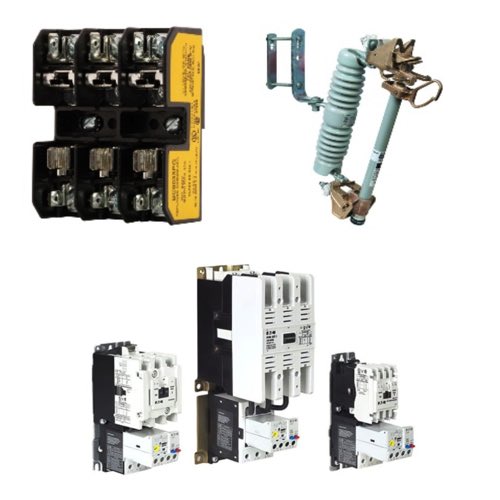Eaton Fuses

RSP Supply carries a full line of Eaton fuses, including expulsion fuses, fuse blocks, and fuse block kits, with voltage ratings ranging from 250V to 34.5kV. Eaton fuses provide reliable circuit protection across residential, commercial, and industrial systems, preventing damage from overloads and short circuits.
Eaton’s expulsion fuses are engineered for medium- and high-voltage applications, such as distribution lines, transformers, and switchgear. They safely interrupt fault currents and isolate damaged equipment, ensuring system integrity and minimizing downtime. For lower-voltage and control applications, Eaton also offers a complete range of fuse blocks and fuse holders designed for safe and efficient installation within control panels and power distribution systems. The Eaton Bussmann series stands out as one of the most trusted fuse product lines in the industry, offering advanced overcurrent protection for virtually any application. Bussmann Low-Peak fuses, in particular, provide exceptional current-limiting performance and enhanced safety. Whether used in motor circuits, industrial control systems, or solar power installations, Eaton fuses deliver dependable performance, long life, and compliance with global safety standards.
FAQs
Q: What types of Eaton fuses are available?
Eaton offers a full range of fuses, including low-voltage, high-voltage, expulsion, and specialty fuses for industrial, commercial, automotive, and solar applications.
Q: What are expulsion fuses used for?
Expulsion fuses are used in medium- and high-voltage power systems to interrupt fault currents and protect transformers, feeders, and overhead distribution lines.
Q: What is the Eaton Bussmann series known for?
The Eaton Bussmann series is known for high-quality circuit protection solutions, including Low-Peak fuses, fuse blocks, and circuit breakers for a variety of electrical applications.
Q: Can Eaton fuses be used in solar or renewable energy systems?
Yes. Eaton provides fuses and protection devices specifically designed for photovoltaic and renewable energy applications.
Q: What factors determine the correct fuse selection?
Selecting the right fuse depends on voltage rating, current capacity, application type, operating environment, and required protection characteristics.
Why Buy Eaton Bussmann Fuses from RSP Supply
RSP Supply offers a comprehensive selection of Eaton fuses and Bussmann series products at competitive prices, with fast shipping and technical support you can trust. Whether you need expulsion fuses for power distribution or compact fuse blocks for control panels, our team can help you find the right protection solution for your electrical system. Count on RSP Supply for reliable Eaton components that deliver safety, performance, and peace of mind.

